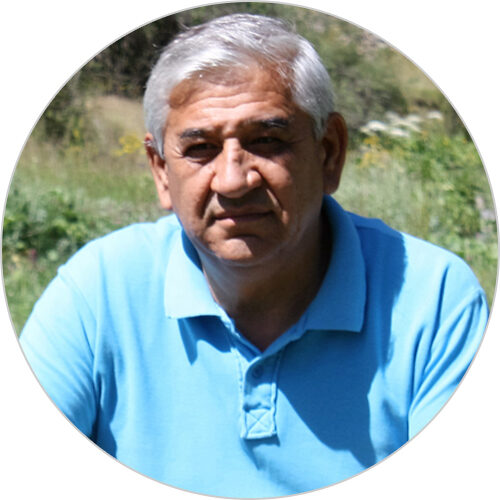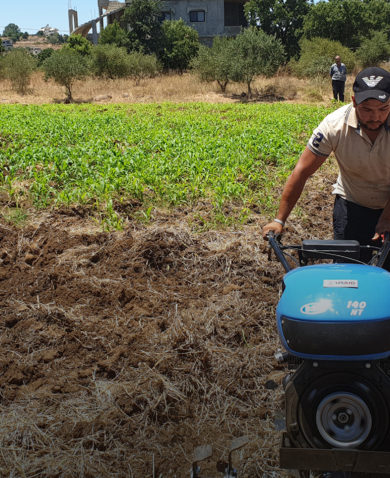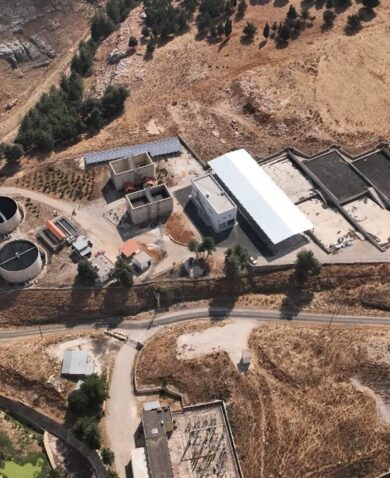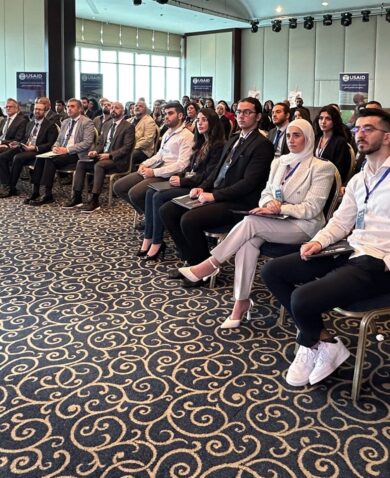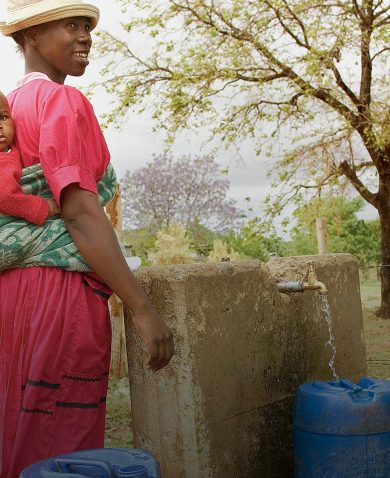
3 Questions with Bakhtiyor Inamov on Leadership in the Water Sector
March 27, 2023 | 4 Minute ReadChemonics’ chief of party on the USAID Tajikistan Rural Water Supply Activity discusses the importance of a locally led approach in meaningfully addressing challenges to safe water access.
![]()
The USAID Tajikistan Rural Water Supply Activity (RWS) partners with local governments, communities, and businesses to develop and improve safe drinking water infrastructure and related services for underserved rural communities. Because the lack of access to safe drinking water disproportionately affects women and children, RWS involves them in every stage of the process.
Bakhtiyor Inamov, chief of party, explains the importance of a locally led approach in addressing challenges related to safe water access.
1. Please tell us a bit about what the Tajikistan Rural Water Activity does. What drew you to a career in international development, and, more specifically, in the water sector?
The Rural Water Supply Activity provides support to the Government of Tajikistan in providing sustainable drinking water services in rural areas by making the existing water supply more reliable and sustainable with the involvement of the private sector. RWS has completed the rehabilitation of three rural water systems, and, as a result, more than 16,000 people now receive regular access to drinking water. Over the life of the project, RWS will rehabilitate 12 water systems serving 45,000 people.
All my life, I have devoted a lot of effort to the problems of rural communities and solving the difficulties that residents face on a daily basis, including access to drinking water. The highest reward for me is to see my neighbors rejoicing and enjoying the opportunity to have access to drinking water. For 20 years, I have supported the Government of Tajikistan in reforming local governance and water supply services. Before joining Chemonics, I worked as deputy chief of party for both the USAID Local Development Initiative and the USAID Local Governance project. Under my leadership, 32 drinking water systems were built, and 70,000 villagers received access to safe drinking water. It gives me great pleasure to continue this work with Chemonics.
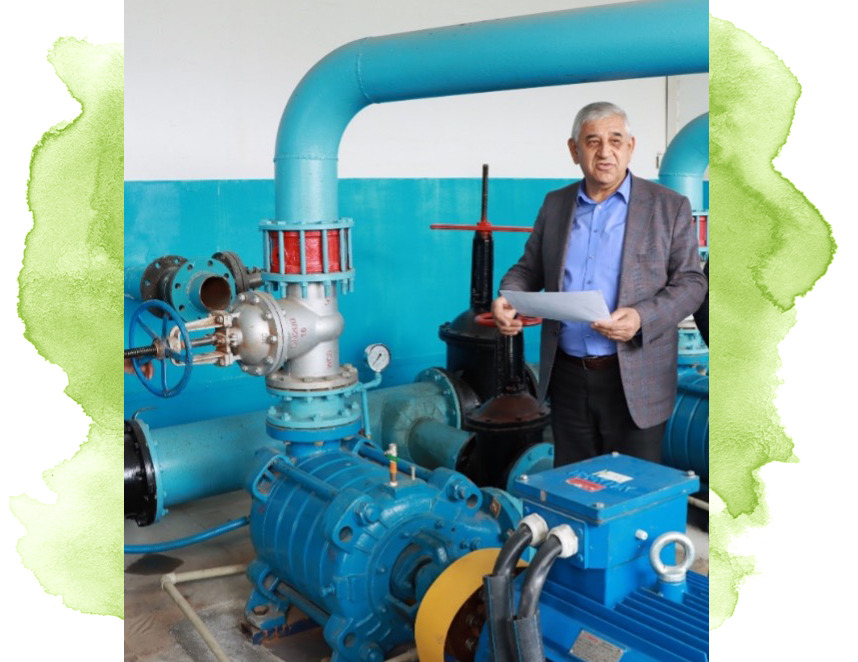
Bakhtiyor Inamov, chief of party, stands next to water pump equipment provided by the USAID Rural Water Supply Activity; the equipment serves approximately 6,700 citizens of Sarob village.
2. Based on your experience, what are the greatest challenges in expanding equitable access to safe drinking water? What opportunities do you see to meaningfully address these challenges?
Tajikistan has a complex institutional structure around the supply of drinking water. The public sector dominates the provision of drinking water services and is not sufficiently interested in competition brought on by the decentralization of services. Today, 7% of the water sector is financed by nongovernmental sources. Twenty percent of water systems do not function, and another 44% function partially. State investment in rural development is extremely low, with rural residents receiving one-third the capital allocation of urban residents. As a result, roughly 50% of Tajikistan’s rural residents do not have access to safe drinking water.
Increasing access to safe drinking water requires granting more powers to local authorities and creating equal conditions for the private sector. Public-private partnerships (PPPs) can become an effective tool, and our project is leading in this direction. Today, with the support of RWS, one PPP project has been successfully completed, and two others are ongoing. This will provide more than 17,500 rural residents with constant access to drinking water and will create trust between the state and the private sector.
3. As a recent graduate of Chemonics’ project leadership program, you received mentorship, coaching, and skills-based training to hone both the hard and soft skills required to be a strong chief of party. What are the most important lessons you learned from the program, and how have you been able to successfully apply them to your work?
As a chief of party engaged in an ongoing dialogue with government agencies, it was important for me to improve my skills and knowledge in effectively building a dialogue with public officials. I appreciated seeing how my mentor and colleagues set priorities and make decisions on using project resources effectively. Knowledge gained from lessons on strategic planning and efficient use of resources helped me to achieve approval of two PPP water supply projects at the PPP Council under the Government of Tajikistan. Together with the municipalities, we were able to reconstruct and operationalize two water systems in the target areas in a short time.
Small rural businesses in Tajikistan are committed to the idea of helping their communities build and rehabilitate outdated drinking water systems, but without the support of the state, it is very difficult to solve these problems. RWS supported the State Committee on Investments’ efforts to share international best practices and provided expert advice to develop a new law, “On Concessions and Public-Private Partnerships,” which makes PPPs more attractive for private investors. PPP procedures are very complicated and time-consuming, and an entrepreneur cannot afford to wait years for their project to go through many assessments and approvals. Simplified legislative procedures will allow small businesses to quickly and effectively develop projects, feasibility studies, and tenders before local authorities select a private partner for the provision of services. This, in turn, will accelerate the solution to increased access to drinking water for Tajikistan’s rural population.
Posts on the blog represent the views of the authors and do not necessarily represent the views of Chemonics.

